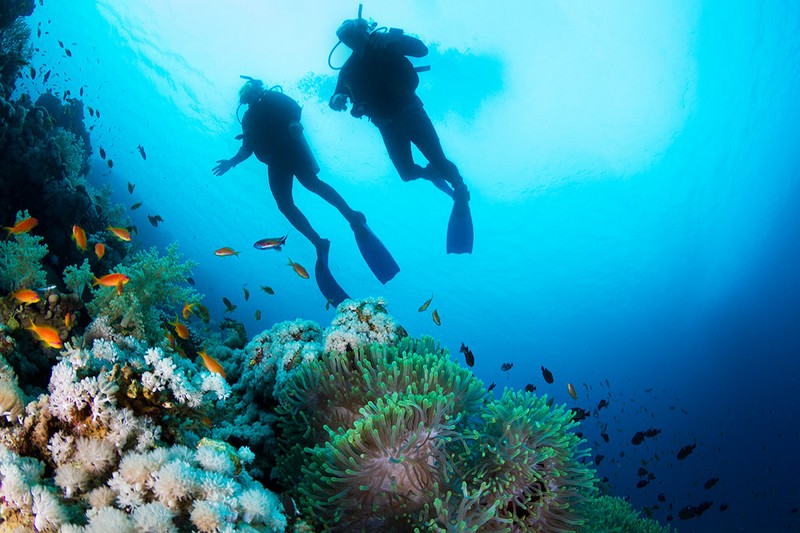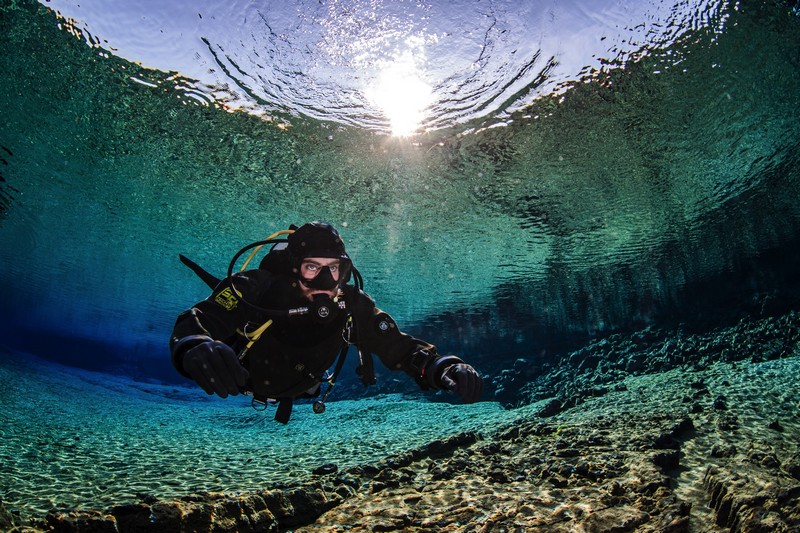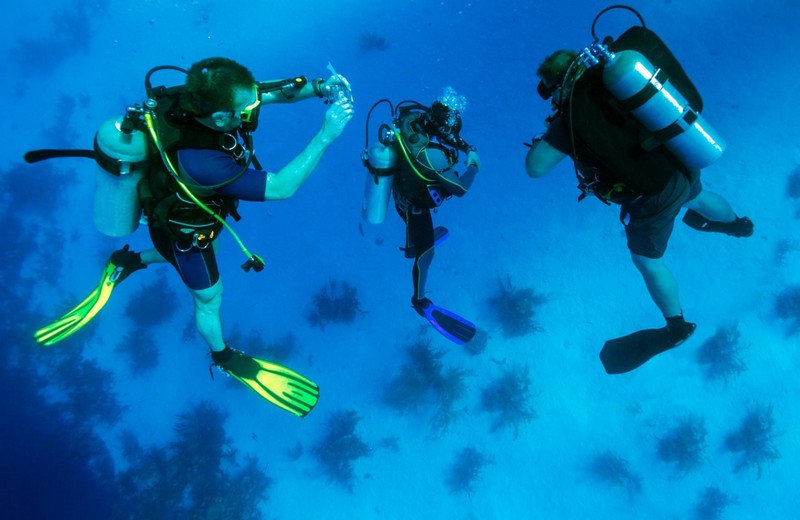(#wanderlusttips #scubadivingtips) Scuba diving in order to see coral reefs and explore the underwater world is a popular sport, especially among adventurous youngsters. To have a safe and inspiring scuba diving trip, you will need to prepare proper equipment and be aware of the following tips.
[rpi]Necessary equipment

– Life jacket, which will help you to float in the water. Wearing a life jacket has several other benefits too, including avoiding injuries or damage when waves cause you to hit reefs or corals. Choose a bright colour, so others can easily spot you from afar, if you need help.
– Diving goggles, which will help you, see clearly underwater. Choose ones with clear glasses and high impact resistance.
– Flippers enable movement underwater when swimming offshore or diving deep underwater. Choose flippers that fit your feet, if they are too small they will hurt you, and ones that are too big easily slip off or cause your legs to tire.
– A wetsuit that keeps you warm, protects you from minor injuries and fits snuggly. If the fit is too loose the wetsuit will soak up more water, causing your body to lose heat, but if it’s too tight you will have difficulty moving and might get blood congestion. Wetsuits are the most common diving attire and they have insulation capacity in both cold and warm water, ranging from 10 to 30 degrees Celsius.

– A snorkel enables breathing while facing downwards in the water. During you first use, you should try facing down in the water and breathing evenly. After getting used to the device, hold your breath and dive in. While diving, do not inhale with your mouth, as the breathing tube is filled with water and could choke you.
– A diving knife is not a weapon. While diving, if you get caught in a fishing net or a mooring line, you can use the knife, kept on your arm or leg to cut yourself free.
– Other diving accessories include gloves, hoods, pressure gauges and can keep you warm and protect you from minor injuries and diving watches are suitable for deep scuba dives.
Weather
Nice weather, a calm sea, moderate waves and clear water are the most suitable conditions for the perfect dive.
Time
Diving is a sport so you should not dive after a full meal or when you are hungry. Diving after a full meal will cause nausea and diving with an empty stomach can easily wear you out. The ideal time for this exciting activity is an hour after eating. In addition, if you are depressed or scared, do not go diving. Only dive when you are in a comfortable state of being.
You can dive without knowing how to swim
Many people believe that diving is a difficult sport that requires many skills. In reality, diving is fairly simple and very exciting. According to Bui Duc Thang, Director of the Vietnam Diving Center, who has had over 30 years of experience in the field, even non-swimmers can dive. The one thing required for diving is confidence. Divers only need to take three diving lessons at a pool to familiarise themselves with the handling of equipment and procedures.
Avoid some ocean creatures
The oceanic world is shimmering, beautiful and mysterious. Sometimes, you can get caught up in this world, and you might encounter creatures that are poisonous. You should avoid contact with jellyfish, urchins and lionfish.

Important notes for diving
Always follow the instructor, always dive with a group, swim slowly and never dive too deep. Do not drink alcoholic beverages before diving. Consciously protect the ocean, do not litter, do not destroy corals or harm marine animals. Once back ashore, to avoid tinnitus, close your mouth and cover your ears and breathe out gently through your nose. After diving, you have to let your body recover for 24 hours before traveling on a plane, so take into consideration your travel time when you are thinking about whether to dive or not.
People who should not dive
This exciting sport is not for people with cardiovascular diseases, as they cannot adapt to the sudden change in pressure and temperature between the air and the water, which can lead to panic and forgetting to follow the instructor. This is extremely dangerous, as they could get sever earaches or even suffocate or choke.
Minh Hang | Wanderlust Tips | Cinet


[…] tip on the Atlantic Coast, Biscayne National Park preserves Biscayne Bay, one of the top scuba diving areas in the United States. This over-90%-water national park is home to an extensive mangrove […]